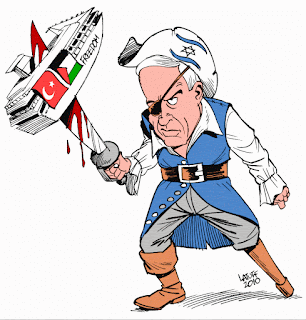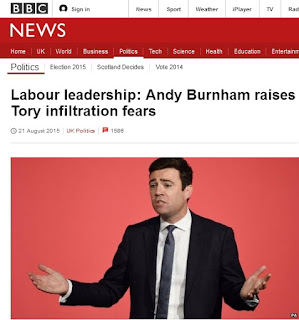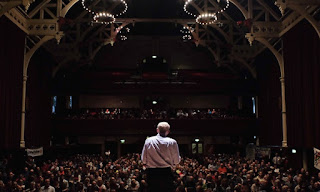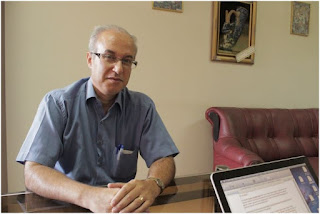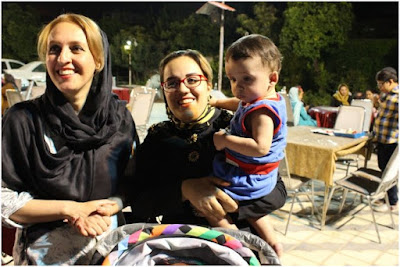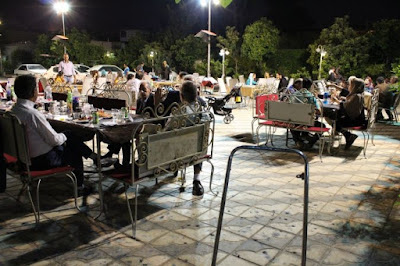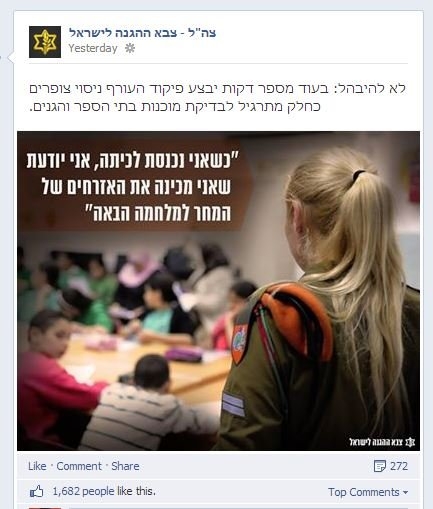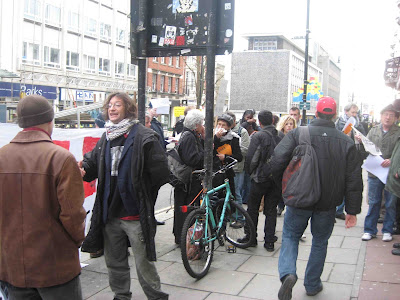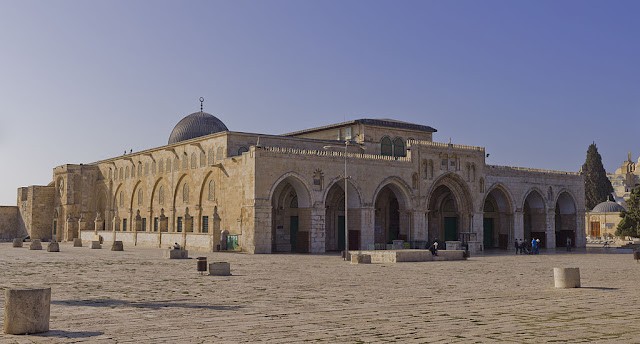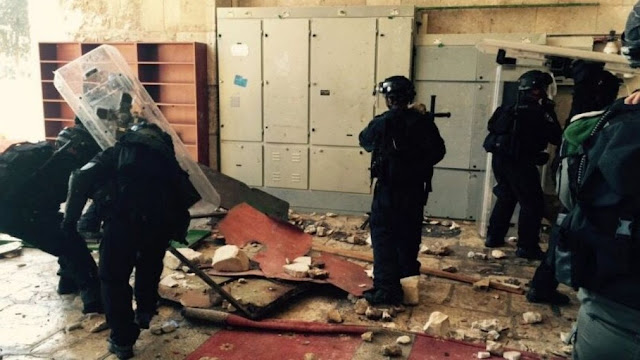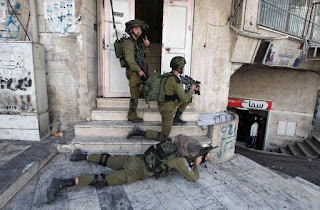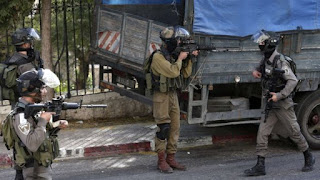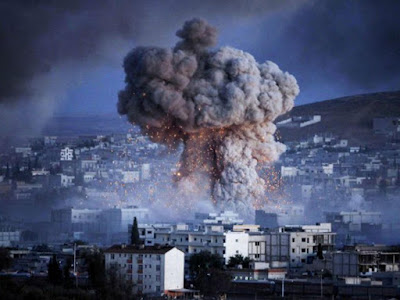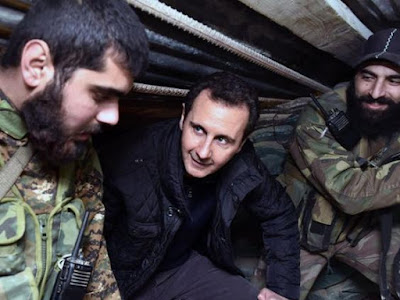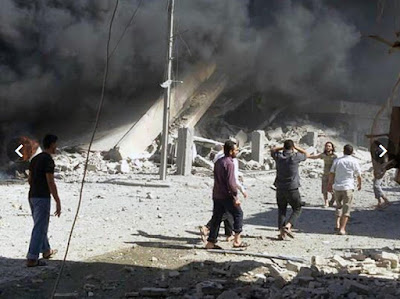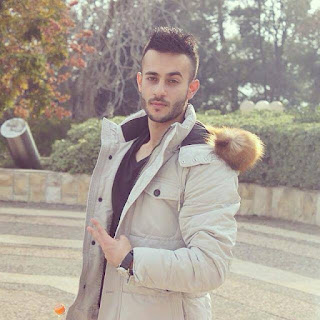Why more Jews leave Israel than enter each year
![]() |
| Ben-Gurion Airport |
![]() |
The Bigot's Poster is aimed at African Jews in Israel
|
An interesting article from 2011 which I’ve just seen. Despite having longed for a Jewish state for over 2,000 years, according to the Zionist myth, over 1 million of the ingrates have nonetheless packed their bags and headed for Western Europe, the United States and elsewhere.What is particularly interesting is that nearly half of Israeli youth would prefer to live somewhere else if they could. And ironically, one of the most prized passports that Israelis can obtain is a German passport. So much so that a few years ago, Israeli Foreign Minister David Levy made a trip to Germany, the sole purpose of which was to persuade Germany not to admit Jews as citizens.
![]() |
| Fluctuating Jewish population in Europe |
Over more than six decades of statehood, successive Israeli governments have repeatedly stressed the centrality of Jewish immigration and the Law of Return of all Jews to Israel for the well-being, security, and survival of the nation. Yet while much is published on Jewish immigration to Israel, considerably less information is available about Jewish emigration from Israel.
![]() |
The Departure Board at Ben-Gurion
Government estimates of the numbers of Israelis residing abroad vary greatly due mainly to the lack of an adequate recording system. Consequently, scholars and others have questioned the accuracy of government figures. Besides the statistical and methodological shortcomings, the number of Israeli expatriates is open to considerable debate and controversy because of its enormous demographic, social, and political significance both within and outside Israel. |
![]()
At the lower end is the official estimate of 750,000 Israeli emigrants — 10 percent of the population — issued by the Israeli Ministry of Immigrant Absorption, which is about the same as that for Mexico, Morocco, and Sri Lanka. Prime Minister Benjamin Netanyahu’s government places the current number of Israeli citizens living abroad in the range of 800,000 to 1 million, representing up to 13 percent of the population, which is relatively high among OECD countries. Consistent with this latter figure is the estimated 1 million Israelis in the Diaspora reported at the first-ever global conference of Israelis living abroad, held in this January.
Current estimates of Israelis living abroad are substantially higher than those for the past. During Israel’s first decade, some 100,000 Jews are believed to have emigrated from Israel. By 1980, Israel’s Central Bureau of Statistics estimated some 270,000 Israelis living abroad for more than a year, or 7 percent of the population. Several decades later, the number of Israeli emigrants had swelled to about 550,000 — or almost double the proportion at the end of the 1950s.
![]() |
| Spanish Synagogue - Spain is issuing passports to Jews who fled the Inquisition |
Of the Israelis currently residing abroad, roughly 60 percent are believed to have settled in North America, a quarter in Europe, and 15 percent distributed across the rest of the world. It is estimated that about 45 percent of the adult Israeli expatriates have completed at least a university degree, in contrast to 22 percent of the Israeli population. The Israeli emigrants are deemed to be disproportionately secular, liberal, and cosmopolitan. Furthermore, the emigrants are generally younger than the immigrants to Israel, especially those from the former Soviet Union, hastening the aging of Israel’s population.
The often-cited reasons for Israeli emigration center on seeking better living and financial conditions, employment and professional opportunities, and higher education, as well as pessimism regarding prospects for peace. Consistent with these motives, one of the most frequently given explanations for leaving Israel is: "The question is not why we left, but why it took us so long to do so." And recent opinion polls find that almost half of Israeli youth would prefer to live somewhere else if they had the chance. Again, the most often-cited reason to emigrate is because the situation in Israel is viewed as "not good."
Another important factor contributing to the outflow of Jewish Israelis is previous emigration experience. As 40 percent of Jewish Israelis are foreign-born, emigration is nothing new for many in the country. Moreover, as Israeli emigrants cannot yet vote from abroad, they are likely to feel marginalized from mainstream Israeli society, further contributing to their decision to remain abroad as well as attracting others to do the same. Whether the Netanyahu government’s effort in the Knesset to approve a bill granting voting rights to Israelis living abroad will slow the trend is uncertain.
Adding to emigration pressures, many Israelis have already taken preliminary steps to eventually leaving. One survey found close to 60 percent of Israelis had approached or were intending to approach a foreign embassy to ask for citizenship and a passport. An estimated 100,000 Israelis have German passports, while more are applying for passports based on their German ancestry. And a large number of Israelis have dual nationality, including an estimated 500,000 Israelis holding U.S. passports (with close to a quarter-million pending applications).
Population projections show that Jewish Israelis will remain the large majority in Israel for the foreseeable future. However, it will be a challenge for Jewish Israelis to maintain their current dominant majority of approximately 75 percent, primarily due to higher fertility among non-Jewish Israelis — nearly one child per woman greater — the depletion of the large pool of likely potential Jewish immigrants, and large-scale Jewish Israeli emigration. Consequently, demographic projections expect the Jewish proportion of the country — which peaked at 89 percent in 1957 — to continue declining over the coming decades, approaching a figure closer to two-thirds of the population by mid-century.
The emigration of a large proportion of a country’s population, especially the well-educated and highly skilled, poses serious challenges for any nation. However, large-scale emigration is particularly problematic for Israel given its relatively small population, unique ethnic composition, and regional political context.
Moreover, not only is Israeli emigration increasing the influence of the orthodox Jewish communities, it is also boosting the need for temporary, non-Jewish foreign workers, especially in agriculture, construction, and care-giving. The presence of more than 200,000 foreign workers — nearly half of whom are unauthorized and mainly from Asia (in particular Thailand and the Philippines, but also increasingly from Africa) — is also contributing to the changing ethnic composition of the country. The departure of Jewish Israelis also contributes to the undermining of the Zionist ideology. If large numbers of Jewish Israelis are opting to emigrate, why would Jews who are well integrated and accepted in other countries immigrate to Israel? Furthermore, up to a quarter of young Israelis in Europe marry outside their faith. The majority do not belong to a Jewish community and do not participate in any Jewish activities. As with other expatriate groups in Western nations, Israelis living abroad often profess their intention to return. However, Israeli emigrants are likely to remain in their adopted countries insofar as they and their families have become successfully settled and integrated.
Israeli governments have already consistently perceivedimmigration levels as too low and emigration levels as too high. In addition to policies encouraging immigration for permanent settlement, Israel has programs and media campaigns actively promoting the return of Israelis residing overseas. The government also maintains connections with the country’s expatriates through mandatory registration in its consulates overseas and outreach programs and activities — and provides counseling, guidance, financial assistance, and tax benefits to returning citizens.
Despite these efforts, it is doubtful based on past and current trends that these various incentives and appeals will be sufficient to entice the return of the million missing Israelis. Large-scale emigration has not only resulted in critical demographic and socioeconomic imbalances in the country, but more importantly poses grave political challenges and jeopardizes the basic Jewish character and integrity of Israel.
Joseph Chamie is research director at the Center for Migration Studies, and Barry Mirkin is an independent consultant.
Bye, the Beloved Country - Why Almost 40 Percent of Israelis Are Thinking of Emigrating
According to a new survey, more than a third of Israelis would leave the country if they could, citing economic opportunities as the main reason. Who are the wannabe leavers, and what can be done to induce them to stay?
Sivan Klingbail and Shanee Shiloh Ha’aretz Dec 15, 2012
The idea of emigrating from Israel is present at every family dinner in the home of Shirlee (Haaretz has her full name), a scientist from the center of the country. More accurately, it’s conspicuous by the absence of two of her three sons. Her eldest son, Nir, 28, left Israel last February to join his brother Idan, 27, in Toronto, where he’s been living since completing his compulsory army service. The youngest brother is about to begin his military service.
The sons’ move was gradual. Idan went to Toronto to study and worked as a security guard for El Al while he was in university. He also became involved in the Jewish community and received a job offer from a large local company. According to Shirlee, “He had many opportunities there to develop personally and professionally, without begging and without favors, so he decided to stay.”
His older brother joined him because he felt, as his mother puts it, that “no one cared about him here. The people that get preferred are the ones who don’t serve, don’t contribute and don’t work, and in the end there is the difficulty of finding a job that suits his skills and will give him and his future family a decent living.”
But even though Shirlee is able to identify with her son’s feelings, she regrets his choice. “We did not educate our children to leave,” she says. “We are very involved and active socially, and we find it sad that they do not see their future in this country.”
Shirlee’s sons have not yet declared that they never intend to return, but she is afraid they will find it hard to come back. For her, it’s an ideological crisis. “We educated them that this is our home and our country, and that it’s wrong to give up your country. For us as parents, it is very difficult. We are left alone and it also involves a breakdown of values. This was not our dream.” In any event, Shirlee believes it’s the partner of each of her sons who will be the one to decide whether they return.
In her opinion, Israel’s finest sons and daughters are the ones leaving the country. “They are good, high-quality people who can contribute -- from doctors and nurses to engineers. The emigration phenomenon here was once branded ‘a fallout of cowards’ [by Yitzhak Rabin], but these days the people who are leaving are talented. They stand out abroad. They are considered smart and successful compared to the Canadians. Many don’t come back.”
Shirlee’s gut analysis is interesting against the backdrop of a survey conducted for Haaretz by the market-research firm Meida Shivuki C.I., under the management of Noam Raz and Merav Shapira. The survey found that 37 percent of Israelis are considering a move to a different country at some time in the future. At the same time, it’s noteworthy than only 2 percent of those surveyed said they are certain they will leave Israel -- it’s only a matter of time.
The primary reason the potential emigrants cite is the difficulty of getting ahead economically in Israel -- cited by 55 percent of those considering emigration. Raz terms this notion a “fantasy.” “We want to think we have a way out of here, but only 2 percent really intend to leave,” he explains.
Fantasy or reality, the fact cannot be ignored that many Israelis want, at some level, to live elsewhere. The tendency to consider leaving is most prominent among voters for center and left-of-center parties; the 30-49 age group; secular, salaried individuals; as well as among inhabitants of the south of the country and the Greater Tel Aviv area.
It’s important to point out that both the research for the article and the survey were carried out before Operation Pillar of Defense in the Gaza Strip last month, though the military escalation in the south was already intensifying and the winds of a potential war against Iran were blowing strong.
Equally important, however, is the fact that, according to various data, most of those who are thinking of leaving are not motivated by the security situation -- in fact, it’s the exact opposite. When the security threat mounts, the Israeli public views leaving as treason, and few emigrate at such times. Indeed, according to the researchers, few Israelis leave for ideological reasons, such as the occupation, antidemocratic legislation or even the emergency call-up orders, which have been widespread in recent years.
According to the State of the Nation Report for 2011-2012, published last month by the Taub Center for Social Policy Studies in Israel, the situation of the country’s young working families has worsened in the past five years (not taking into account Arab and Jewish ultra-Orthodox families, whose situation has been even more aggravated).
Figures issued by the Organization of Economic Cooperation and Development, of which Israel is a member, show that Israel is lagging in most of the relevant indices. For example, Israel is 29th out of 36 countries in terms of investment in education. In health investment, Israel is third from last. Israel is in 25th place in the quality-of-life index and in last place in terms of government administration.
“What’s happening today in Israel recalls the process undergone by Jerusalem,” says Tomer Treves, a cofounder of URU (Wake Up), an association that promotes a civil agenda for the country. Jerusalem, he explains, “lives every possible conflict every day. Those who left the city over the years were people able to make a living, and the city grew poor. Without state funding it would not be sustainable.”
Treves terms this “the moving of the capable.” People are leaving, he says, “because of what became of the Zionist idea. The moment the tie with Israel is weakened, the point of remaining is measured by the quality of life, and Israel is not in a good place from that point of view.”
Indeed, the Haaretz survey shows clearly that voters for right-wing parties and people who are religiously traditional or Orthodox tend to say that they will not leave because Israel is the central place of the Jewish people. Not everyone who took part in the survey would agree with that proposition. Treves: “The right and the left in present-day Israel are in dispute over one issue: where on our scale of identity we place Jewish identity. The more of a humanist and liberal you are, the lower you situate your Jewish identity. It’s been like that ever since Benjamin Netanyahu whispered into the ear of [the late kabbalist] Rabbi Kaduri, ‘The leftists have forgotten what it is to be Jewish.’”
Many of those who categorize themselves as belonging to the political center or left will probably reject that claim (maybe even angrily). Nevertheless, a chasm seems to have opened between their conception of what it means to be Jewish and the way they grasp the state’s conception of what it means to be Jewish. The moment the decision to live in Israel is no longer based on values, economic parameters enter the equation -- at which point no few Israelis think their future lies in other, greener pastures.
Yes, it’s the economy. A graph published by Prof. Sergio DellaPergola, from the Institute of Contemporary Jewry at the Hebrew University of Jerusalem, in the online journal Hagira (Migration) shows a rise in emigration from Israel in recent years. DellaPergola’s research was based on the data for departures from the country as compared with arrivals. His conclusion: in 2011, approximately 14,000 Israelis left the country and did not return.
At the same time, DellaPergola hastens to point out that the situation in Italy, where he was born, and in other Western countries is more acute. “I spent two months in Italy last summer,” he says. “The situation there is far more serious, particularly in terms of unemployment. The jobless rate is 9 percent for the country as a whole, but 34 percent among young people. Here in Israel, many people in the young age groups are working, whereas many in Italy have nothing. Even people in their late thirties are out of work. They do not marry and they live with their parents.”
Insurance policy
According to research done by Yossi Harpaz for his M.A. thesis in the Department of Sociology and Anthropology at Tel Aviv University, in 2007 more than 100,000 Israelis also held citizenship of countries in Central and Eastern Europe, twice as many as in 2000. Obtaining a foreign passport is considered a type of insurance policy rather than indicating an intention to emigrate. Also noteworthy is the ethnic identity of those who are getting the European passports: they are the children and grandchildren of people of European descent – generally speaking, Ashkenazim.
“It might not be politically correct to say this, but the Ashkenazim have been transformed from being identified with the state into a segment of their own,” says Noam Manella, a strategic consultant and lecturer in Israel and abroad about the effects of Generation Y --people born from the early 1980s -- on organizations and society. “The Ashkenazim have become one more population sector, like the ultra-Orthodox, the Arabs and the Russians,” he says. “Many Ashkenazim like to say humorously, ‘We have become a negligible minority in Israel,’ and then go on to ask themselves, ‘What connects me to the country?’ People today are looking for belonging based on fields of interest and life values, not only national belonging. If I feel alienated, then it’s preferable to feel that way in a more comfortable location -- one that also offers me diverse and interesting possibilities for professional development. A young Israeli start-up person can feel more of a kinship with an American counterpart in Silicon Valley than with the neighbor across the hall.”
The reason the local connection has become weakened, Manella says, is because the state itself unraveled the thread that links it to its citizens, in a decades-long process. He cites unequal army service, religious radicalization, the economic abandonment of the disadvantaged, and sweeping privatization.
The country has become more religious, he believes, and people who define themselves as liberals are finding it more difficult to connect with it. Education Minister Gideon Sa’ar, he adds, is trying to deepen people’s connection with the state but is doing so by evoking controversial symbols, such as sending schoolchildren on mandatory visits to Rachel’s Tomb in the territories.“That is a big mistake in terms of understanding the new ties that link people in the open world,” Manella says.
The solution, he says, entails a renewed sense of belonging, which he considers a national mission: “At one time, people were connected through large national symbols, but today the only thing that can create the connection is mutual commitment, and the state has to seize that -- equality in bearing the burden. The existential danger that once connected us is now separating us. That’s because the state has failed to generate compensation or a fair exchange for the existential problem in our region. The classic mistake is to try to connect people to the state through patriotic symbols, when what they are looking for is mutual commitment,” he concludes.
Glass ceiling
When it comes to the reverse direction of migrants – into the country – Israel occupies a special place. It’s seventh in terms of the number of immigrants in the country relative to population size. As a whole, the phenomenon of migration between countries has been growing in recent years. According to United Nations Population Division figures, in 2010 there were 214 million people living in a country different from the one in which they were born – an increase of 25 million in a decade.
In short, Prof. DellaPergola says, the rise in migration is a global phenomenon. “Switzerland has a higher emigration rate than Israel,” he notes. “Switzerland seems like an ideal country and its population is roughly the same size as Israel’s. The explanation for the leaving phenomenon there is the limitations caused by size. The result is an employment problem for talented people, who can easily find jobs abroad.”
In DellaPergola’s view, the limitations imposed by size in Israel are more significant and make many Israelis feel they have reached their own glass ceiling. He chooses to illustrate his analysis from his own milieu, the academic world. “It frustrates me as an academic to see the number of available teaching positions shrinking,” he says. “That is the problem faced by small countries.”
Israel’s mobility index for academics is very developed, DellaPergola says, owing largely to the large-scale cooperation with universities abroad. “Researchers nowadays talk about multinationalism,” he says. “Most of us have more than one significant attachment in life, even though for most of us the center of gravity lies in one location. Every emigrant can visit Israel 20 times a year if he wants. That influences the way we identify migrants.”
Despite the world trend and the fact that people with a good education get job offers abroad, DellaPergola believes that Israel can cope with the problem. “Policy in this regard needs to be reinforced,” he says. “We need to think more about suitable opportunities for the population structure here. When there is an educated population, as in Israel, the society needs solutions of employment for the educated. Research and development should be expanded.”
In any event, DellaPergola emphasizes that Israeli society continues to be very optimistic. He draws on UN data, which are untainted by bias, he points out. “The situation should be grasped as an opportunity, not a calamity. There are people who spend a day here and a day over there, five days in London and the weekend in Israel. The concept of who is a migrant needs to be revised accordingly; obstacles have to be removed and help should be given to those who want to live and work in Israel.”
According to the hard data, the scale of migration in Israel is three leavers per 1,000 residents. Michal Sabah, a doctoral student in demographics at the Hebrew University who also works for the Central Bureau of Statistics, notes that in comparison with developed countries -- such as, among others, the Netherlands, New Zealand and Australia -- migration from Israel is low.
Every society has a migrant profile, she explains. Israel follows the pattern of other developed countries: the higher the education level, the greater the likelihood of migration. Holders of doctorates are more likely to leave than people with high school or lower education.
Earlier studies show that holders of academic degrees are twice as likely to migrate as high school graduates. “Generally speaking, the migrants will have a technological education and have a male-dominated occupation. The prospect of a woman engaged in a ‘male’ occupation migrating is twice as high as that of a woman who is in a ‘feminine’ or mixed occupation,”Sabah adds.
The studies on which Sabah draws suggest that Jewish migrants have cause to be optimistic. Research conducted in the United States, which is the most popular target country for Jewish migrants, shows that Jews integrate within a relatively short time and improve their socioeconomic status. But don’t rush to pack your bags just yet. Sabah emphasizes that “in any event, 20 percent of the emigrants return to Israel.”
She continues: “Those who leave do so because they can. The assumption that underlies the theoretical models is that people make decisions rationally and compare the possibilities that they have in another country.”
It’s more difficult for Israelis to give up the perception that the country is their home. “Most people do not leave in order to migrate,” says Prof. Tamar Hermann, from the Open University’s Department of Sociology, Political Science and Communication. Hermann, who has done considerable research on the Israeli migration phenomenon, adds that many leave because of a specific job or for studies, but in some cases extend the time they intended to devote to that pursuit. “It is not planned migration but an ongoing development, which in the end comes down to emigration,” she says. “Few people pack their life’s belongings in advance with the aim of moving elsewhere permanently.”
According to Hermann, emigration from Israel is still not perceived as a success story. “It’s true that there is less criticism of those who leave. No one will speak of ‘a fallout of cowards’ any longer, but most [leaving] lead a middling life. They do not feel pride in their success and instead feel a need to apologize.”
The fact that Israelis tend not to declare their leaving as an act of emigration is related to their attachment to Israel, even after they have left. Israelis abroad maintain a warm relationship with Israel, Hermann notes, and quite a number return because of their children -- or, more accurately, because of the change their children undergo. “The children become Americans, Canadians or Europeans, and the parents feel they have lost their common language with them. Israeliness is generally not sustained in the second generation.”
Lack of hope
None of this comes as a surprise to Sharon Eyny and Amit Noy Nevo. A year and a half ago, they founded a company in New York to assist Israelis who move to the city. The company, called Get it Done NY, helps new arrivals find housing and a school for their children -- in short, to acclimatize. Nevo and her husband moved to New York in 1997. “We really wanted to try New York,” she says. “We were here for our honeymoon, fell in love with the city and decided to give it a try. We didn’t plan on staying this long,”she adds.
Eyny went to New York at a far younger age. Her parents left Israel when she was eight. At 17 she decided to return to Israel, but after a few years moved back to New York. “We founded the company after we identified the need for a service like ours,” Nevo says. “We were both involved even before. We knew about people who were coming here and that the number was increasing. We understood that many of them need help.”
As a longtime New Yorker, Eyny says she discerns a change in the profile of the Israelis coming to the city. “In the past they were in the 18-30 age bracket. They didn’t have much and came to New York to try their luck. These days there are a lot more families. That also has to do with the fact that there are now more options for families. The feeling used to be that New York is far away, but now people feel that it is much more accessible. To hop aboard a plane and go to Israel is also no big deal anymore, and people have more courage to go in the knowledge that they can always go back to visit.”
From conversations with families they have worked with, Nevo says the main reason people move from Israel to New York is economic. “These are people who feel they can earn more here than in Israel, and that in Israel they have run the gamut.” She adds that another reason is higher education: many people leave, because overseas they can develop academically in a way that is not possible in Israel. In addition, many of the families that leave think the educational level in Israel is not up to par.
Ran Harnevo, a high-tech entrepreneur, is much more blunt. “I have a relatively good excuse for not living in Israel,” he says with a smile. “We established a start-up in Israel, and after we raised $5 million I went to New York to develop the business side and get to know the market. That was four and a half years ago. The company was sold to AOL in 2010, but it’s still an Israeli-American company, with 70 employees in Israel.”
Harnevo, 38, moved to the United States with his wife; they now have an American-born daughter. In the period in which they have been living in New York, the number of Israelis working in the Internet sphere has grown apace. These days they are known as the “Israeli mafia,” Harnevo laughs. “There is talk in the city about why there are so many Israelis here,” he says. “We feel the growing desire to move in the form of more relocation requests. These days, when I think about going back to Israel, the question that comes up is, What I could do there?
“The Internet has become one of the big, attractive professions,” he adds. “It is totally global. It can’t be managed from Israel. We would not have succeeded if we had tried to run the company [5min Media] from Israel.” There are other reasons, too. “The feeling is that there is economic and political distress in Israel. That the Israeli middle class -- of which I see myself a part -- faces two stumbling blocks: one is the difficulty of being unable to do well economically, due to an uncompetitive, cartel-driven market; and the other is a lack of hope.
Politically, the discourse is one of despair. It’s a fanatic, illiberal discourse. An educated secular individual in his thirties, who is part of the smart, successful Internet industry in Israel, understands that this same route makes it possible for him to leave Israel.”
The tendency by high-tech people to leave the country seems clear and natural, but they are not the only ones who are finding work abroad with comparative ease. Even though the fact that Europe and the United States are reeling under the impact of the economic crisis would appear to make immigration more difficult, in practice there are certain professions which are in high demand abroad. They belong to what has been called the “creative class.”
The term was coined by the American-born economist and social scientist Richard Florida, as part of a theory he developed about urban renewal and economic development in post-industrial cities. According to Florida, cities that are able to attract members of the “creative class” will enjoy economic prosperity.
Many theoreticians reject his approach, but mayors of many big cities have warmly adopted it. The result is that the members of professions that fit the “creative” category -- designers, architects, high-tech personnel and others -- are considered desirable and find it easier to obtain work and residence permits.
Tel Aviv is considered a city that the creative class is fond of. But, for example, the architects who work for a salary in architectural firms will find it difficult to pay the city’s high rental fees. For Israelis, globalization -- which is nourishing the interest in the creative class -- has made the perennial question about the difficulty of living outside Israel almost anachronistic.
Harnevo hesitates for a moment when asked if it was hard for him to make the decision to live far from his native land. “I think there is something a little childish about the Israeli narrative,” he says. “The narrative insists that there is no place like Israel. It’s a powerful narrative and is implanted in you, but suddenly you discover that it’s not so. There are places like Israel and the skies do not fall when you leave. Those who go back do so not because there is no place like Israel, but because it’s their home and it really is hard to switch homes.”
Point of no return
Conversations about emigration from Israel often come down to the issue of the brain drain the country is experiencing. “The number of European university lecturers working in the 40 leading faculties in the United States is between 0.5 percent and 4 percent. In other words, for every 100 lecturers who work in Germany, 2.9 work in the United States. But for every 100 lecturers working in Israel, there are 25 working in the United States.” The speaker is the economist Prof. Dan Ben-David, who is the executive director of the Taub Center and teaches in the Department of Public Policy at Tel Aviv University.
Ben-David conducted a study of the brain-drain phenomenon five years ago. He explains that although the brain drain to the United States is not exclusively an Israeli phenomenon, there is nothing like it anywhere else in the world in terms of its proportions. “There are eight Israelis in the Computer Sciences Department of Stanford, which is almost a subdepartment,” he says with a half-smile. He is concerned not only about the future of the universities in Israel but about the country’s character and image as a whole. “I am apprehensive that we will reach a point of demographic no-return here.
“Demography refers not only births but also to those who remain here to live,” he explains. “At present, it is still possible to shift the country onto a sustainable track, but in another decade that will no longer be possible. Today, half the children in Israel receive a lower-level education than is the case in Third World countries, and that number is only increasing. That’s what the elections should be about.”
Does the brain drain exist in fields other than computing? According to a 2008 paper, written by Profs. Omer Moav and Eric Gould for the Jerusalem-based Shalem Center, the educated public – those holding a B.A. and above – are more inclined to emigrate than those with a high school education or lower. The authors note that more than 2.6 percent of educated, married Jews in the 25-40 age group were categorized by the Central Bureau of Statistics as emigrants in 2002, as compared with 1.1 percent among those with lower education.
Moav and Gould analyzed the data of the 1995 population census combined with an indication of the status of emigration in 2002. They add that the percentage of educated young people leaving the country is significantly higher than their share in the general population. On the basis of their study, they conclude that Israel and Italy are the only two developed countries in which the number of educated people emigrating from the country exceeds the number of educated immigrants entering the country. This is a migration pattern that is found in poor countries.
Another interesting finding by Moav and Gould concerns the occupations of those who choose to leave. In first place are senior university faculty, with a 6.5 percent emigration rate. They are followed by physicians, at 4.8 percent, and then engineers and scientists (not from universities), whose emigration rate is slightly above 3 percent. The study found a correlation between level of education and emigration, primarily among males; and that holders of an M.A. (or its equivalent in the sciences) are more likely to emigrate than holders of a B.A. Academics and physicians head the list.
In general, the data on emigration from Israel are extremely difficult to analyze. Passport control does not ask each person where he is going, so it is difficult to determine who has left and for how long. Researchers therefore qualify their findings, and this is why we can talk confidently about a trend of leaving but less so about a phenomenon.
Poor everywhere
Sagi Balasha is the CEO of the Israeli Leadership Council, whose mission, according to its website, is “to build an active and giving Israeli-American community in order to strengthen the State of Israel, our next generation, and to provide a bridge to the Jewish-American community.” He, for one, feels that fewer Israelis have been coming to the United States in the past few years, because of the economic situation there as contrasted to Israel.
In fact, he says, the desire to move to America is the product of mythmaking. “In Israel we grew up with the perception that America is the height of ambitions, the land of possibilities, in contrast to the self-laceration in Israel. A whole generation was raised in that light. Israel is characterized by frenetic activity and has become a start-up nation, and the feeling is that America is sleeping.”
Nevertheless, Balasha says, there are many who view the United States as the next step in their career. He says he recently met a young Israeli who chose to leave a comfortable, well-paid career with good social conditions and even tenure, for the United States.“It’s likely he will have to compromise, so I asked him why he did it. He said he also wanted to try America. That is an illusion, and if you probe it you find that with the exception of a few Israelis who really did make it, the majority live at a middling level and most of them did not triumph.”
Balasha’s organization is trying to create an Israeli community and Israeli culture for the Israelis in Los Angeles. One of its activities is to distribute food to poor families from Israel. “Every week we distribute dozens of crates to Israelis who don’t have food to eat. You have the whole gamut here, from the poor to the upper class. The living standard is also very similar to what you have in Israel.”
There are 250,000 Israelis in the United States, Balasha says. That’s more than the population of Netivot, Ofakim, Beit She’an and Nesher put together. The large number of people translates into large differences in terms of success. Even though the statistics say that one in every five emigrants return, in practice even longtime emigrants find it difficult to admit -- even to themselves -- that they are not likely to go back.
Israel is home
Roy Azoulay, 34, and his partner, Liat Reuveni, 38, have been living in Oxford, England, for the past four years. They made the move so he could obtain an MBA. Azoulay notes that even though the MBA studies take a year, their original plan was to stay for five years. “We were always curious about how it might be to live abroad, and we wanted to get a little experience of the outside world,” he says.
After obtaining his MBA, Azoulay started to work in a subsidiary of Oxford University, a kind of technological hothouse that supports about 15 companies. Reuveni, a dental technician by profession, does not work. She is raising their son, Yonatan, who is 18 months old and was born in England, and their Israeli-born daughter, Mika, age 5. “It’s common here for one of the spouses to take a break from the world of work and allow the family to subsist less materialistically, in order to give the children the optimal conditions until the start of school,” Azoulay says. “In Israel, that is not considered a legitimate choice.”
In addition to the legitimacy of being able to be with the children, Azoulay also notes the “sanity” of the English working day, adding, “Obviously, life here is more comfortable in many ways.” Nevertheless, he insists that from the family viewpoint, their home is Israel and they do not intend to stay in Oxford forever.
An impressive declaration, but a few weeks ago he received a job offer he will find hard to refuse, and if he accepts it, the family will remain abroad for two more years. “The decision is being made with mixed feelings, because we very much were waiting to return. We hesitated to leave, because we loved the life in Israel and enjoyed ourselves. But this offer is a once-in-a-lifetime opportunity,” Azoulay explains, in an apologetic tone.
All the emigrants we interviewed for this article come from the middle class -- the class which most economists maintain is the basis of a viable democracy with a healthy economy. The middle class bears the tax burden (its members don’t have the smart accountants that the upper decile can afford to hire) and also the burden of army reserve duty. When the Israeli middle class took to the streets in the social-protest movement of summer 2011, it discovered that the decision makers are indifferent to its problems.
Still, though no significant change has occurred, it can be argued that the protests brought about at least one change: the perception of an eroding middle class is now axiomatic. Middle-class salaries have dropped by 7.7 percent in the past decade. The possibility for further erosion among the middle class remains high: sometimes all that separates social well-being from dire poverty is a health or employment catastrophe.
“No fewer than 15.5 percent of those who sought help from aid agencies in Israel last year categorized themselves as former middle-class families,” attorney Eran Weintrob, executive director of Latet -- Israeli Humanitarian Aid, told TheMarker in September 2012. The economic ailments of Israeli society are not confined solely to the middle class. The past few years have seen a dramatic growth in inequality here, with large disparities forming. As a result of the concentration of wealth among a few families, even those who are by definition part of the upper decile don’t always feel they have anywhere to progress to economically. If we add the high cost of real estate, it’s not surprising that a generation has grown up here feeling economically stymied and believing that it can have a better life elsewhere. The fusion between economic insecurity and a sense of hopelessness explains the desire to leave.
If we don’t think our children’s lives will be better than ours, why stay?
Scratching an itch
Ruthie Meiri Newgrosh, 35, filmmaker, on why she swapped Israel for England.
I am writing this on my iPhone. At the moment it’s my connection to the outside world, because most of the time I am closely connected to a 5-week-old baby girl. I’ve been living in Manchester for the past two and a half years, happily married to Alex, an English Jew who was born here.
About three and a half years ago, I started to feel an itch in my stomach telling me I could no longer stay in Israel. That was before the missiles were aimed at Tel Aviv, before the social protest movement, before a lot of the wrong things that have subsequently occurred. Not that it was a new idea.
Ten years ago, I persuaded my grandfather to apply for the Slovakian passport to which he was entitled. Since then he has used it a few times to get a pensioner’s discount on European trains. My father obtained a passport a few years later, and I launched the process to get one around the time the itch started.
I received the coveted passport exactly a week before I moved to England. It saved us a lot of grief and a lot of money. A visa for a fiancee or married woman means plenty of British bureaucracy.
Before the itch began, and while it was still bugging me, I was your typical Tel Aviv type: flourishing career in television, dog, going out a lot, yoga, the beach. I loved every second of my life. But I was also a left-wing activist, highly motivated to bring about change and equality. I organized a group to learn Arabic, went to demonstrations, edited film clips for free. I worked on behalf of my art. Until I was worn down. Seriously worn down. The state won.
Then came the itch. The itch told me to start expending a little more energy on myself and my future, and a little less on an insensitive state that didn’t give two hoots for me.
I met Alex at the wedding of our best friends. The ultimate schmaltz. About a year after I embarked on the process of moving to England, the universe sent me the love of my life. An English love. After three days together, we both knew this was it.
It was obvious I would move to England rather than him moving to Israel. Not that it wasn’t hard to give up so much. Especially family and career.
I often have dreams about Israel and thoughts about what could have been if Alex had moved into my rented apartment in Tel Aviv. But then reality seeps into the fantasy and I know I would still be awash in debt, with no chance of us ever having a house or apartment of our own. I would have remained frustrated.
Not that everything here is perfect. Far from it. But in Manchester, too, as in London (in the words of the Chava Alberstein song), the despair is a lot more comfortable.
Friday, 21 September 2012 09:00
Almost 1 million Israelis left the state to live in the US, Britain, Australia and Germany in 2011. The figure was revealed by researcher Michel Sharon, who added that they end up having a prosperous life in their new countries.
The details of Israel's migration statistics were given in a television programme on Israeli Channel 2. Migrants to Canada told the programme that life there is "more peaceful" than in Israel. Around 2,500 Israelis migrate to Canada every year; one of the reasons given is that there is no talk of death and destruction there. This is causing the Israeli government some concern.
According to Israeli newspaper Maariv, the state is losing out on the migration stakes. The Israeli Central Bureau of Statistics said that the number of migrants to Israel in 2010 was 18,129, the lowest since 1988.
Maariv also reported that 70 per cent of American Jews have not been to Israel and do not even intend to visit the country which is given vast amounts of tax dollars by the US government. More than 50 per cent of those Jews are married to non-Jews and 50 per cent do not care if Israel ceases to exist. For this reason, Israel's government is preparing an initiative which aims to reinforce the relationship of Jews around the world with Israel.
Of the 87 per cent of Jewish youth from the countries of the former Soviet Union who want to migrate, only 36 per cent would be willing to go to Israel, claimed Maariv. The newspaper said that Jews from Eastern Europe are no longer regarded as potential immigrants by the Israeli government "in reserve" to counter the demographic reality of a growing Palestinian population. US Jews are not expected to fill the migration gap.
Thousands of migrants from the former Soviet Union left Israel and returned to their countries of origin either because they are really Christians and went to Israel simply to benefit from government inducements, or because of the better economic situation at home. Jewish organisations in the former Soviet empire have been working hard to keep their fellow Jews in their countries, claimed Maariv, while the situation in Israel is still very unstable.
Commenting on this, Israeli geographer Arnon Sofer said, "The future of Jewish Galilee [sic] is uncertain as the number of Jews decreases, while the number of Arabs is increasing." The specialist in water issues and demography at the University of Haifa said that the number of Arabs in Galilee stands at 640,000 whereas there are only 570,000 Jews. He suggested the need for a government-funded Jewish migration project to change the demography of the region in favour of the Jews.

